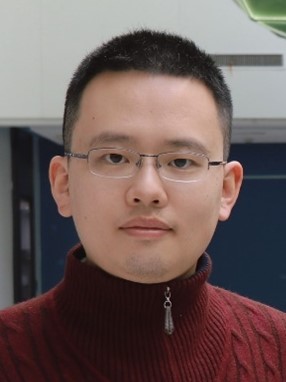Events
Mar 06, 2025
Seminar (2025-03-06)
School of Biomedical Sciences cordially invites you to join the following seminar:
Speaker: Dr. Dongrui Wang, Principal Investigator, School of Medicine, Zhejiang University
Talk Title: Promises and challenges of CD7-targeted CAR T cells against hematological malignancies
Date: 6 March 2025 (Thursday)
Time: 4:00 pm – 5:00 pm
Venue: Lecture Theatre 2, G/F, William M.W. Mong Block, 21 Sassoon Road
Host: Professor Rio Sugimura
Biography

Dongrui Wang, PhD, is a principal investigator at Zhejiang University. Dr. Wang received his PhD from City of Hope Medical Center, and postdoctoral fellowship at the University of Texas MD Anderson Cancer Center. Dr. Wang’s research is focused on the development and refinement of cellular therapy targeting hematological malignancies and solid tumors. His work has generated novel chimeric antigen receptor (CAR) T cells and optimized the antitumor potency of therapeutic immune cells. Building on the establishment of CAR T products, his team has discovered the dynamic evolution of therapeutic and endogenous immune cells during treatment. His scientific work has contributed to the fundaments of several clinical studies.
Abstract
There have been unmet clinical needs to develop cellular therapy targeting hematological malignancies originated from non-B cell lineages. CD7 is expressed on the vast majority of T cell tumors and some myeloid tumors, but CD7-targeted cellular therapy is complicated by CAR T cell fratricide and insufficient immune reconstitution post-treatment. Our previous work has developed CD7-targeted, healthy donor-derived CAR T cells harboring multiple genetic modifications to reduce fratricide, GvHD and host rejection. These “off-the-shelf” products showed preliminary safety and efficacy in clinical studies. However, analyses of clinical data revealed severe defect of hematopoiesis following CD7-CAR T cell infusion, warranting combinational treatment strategies. Exploiting the conditions of bone marrow aplasia post-infusion, we created an all-integrated approach where hematopoietic stem cell transplantation (HSCT) was performed after CAR T cell infusion, without myeloablative chemotherapy or GvHD prophylaxis. This strategy allows for long-term persistence of CAR T cells together with complete hematopoietic reconstruction. The recovered endogenous T cells lacked CD7 expression, which can reduce their allo-reactivity while preserving the immune-protective function. These results have illustrated the potential of the CAR T-HSCT integration for treating end-stage hematological malignancies.
ALL ARE WELCOME.

